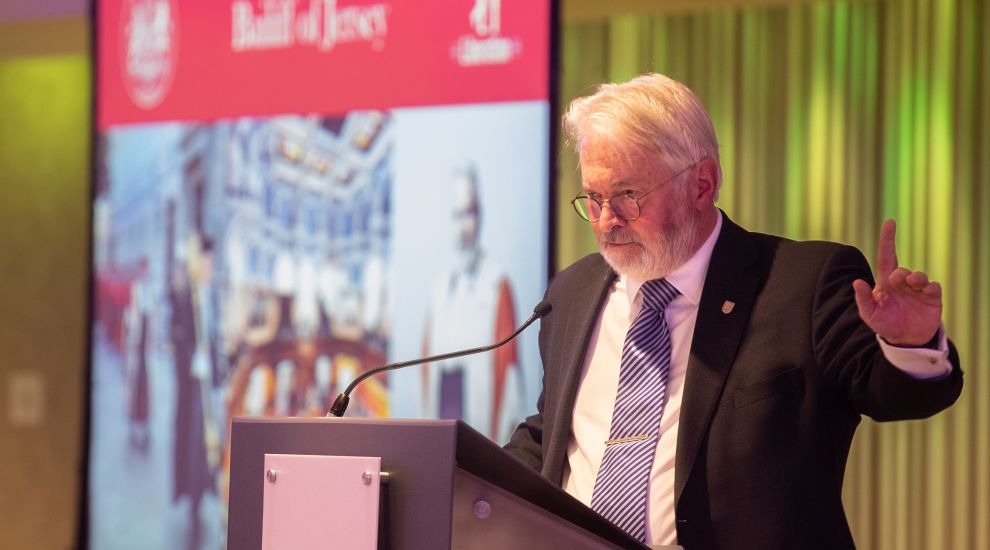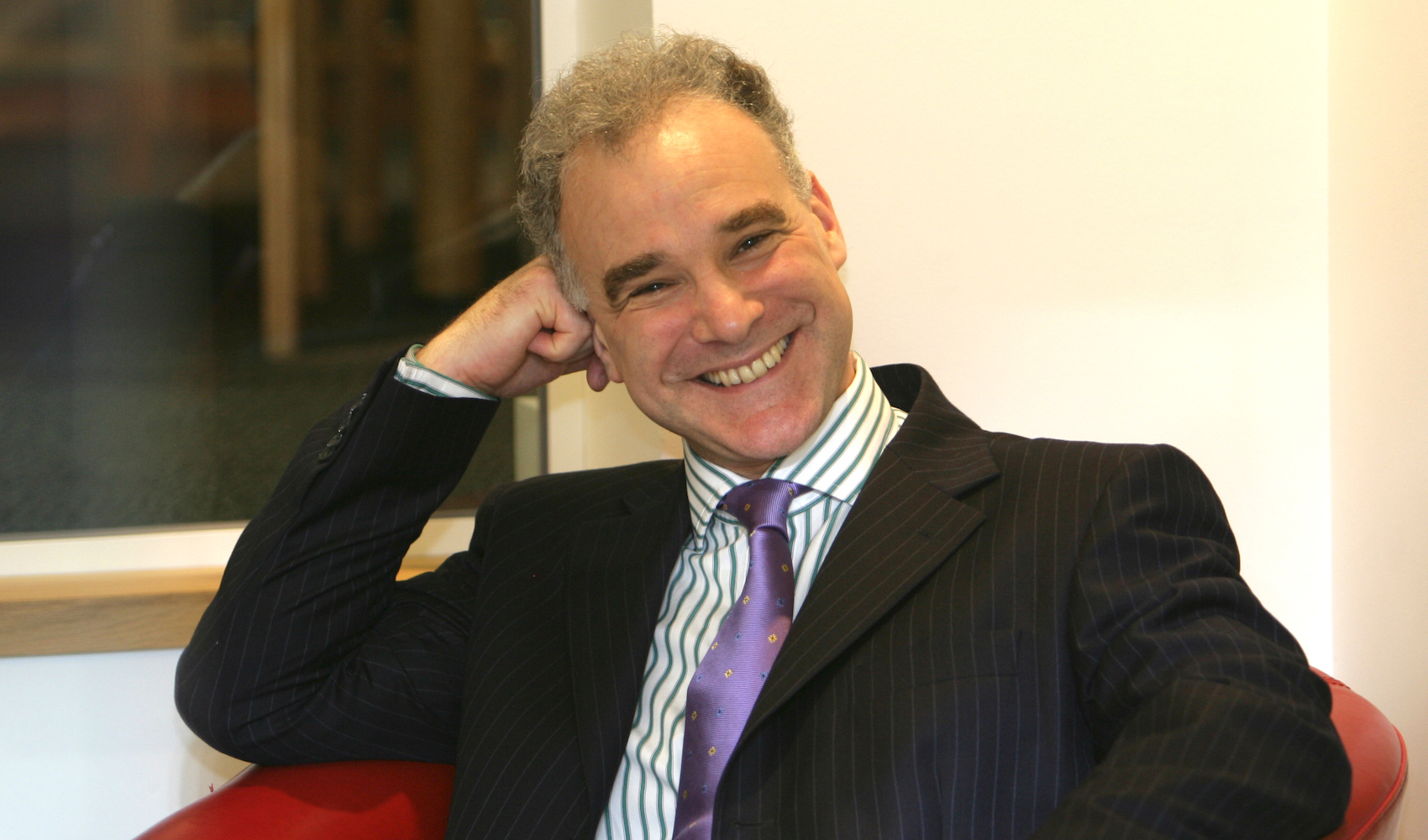


A former advocate and president of the Law Society has put forward a way to solve the issue of the Bailiff's dual role – without a referendum.
It comes after Bailiff Sir Timothy Le Cocq – who has been in the role since 2019 – said that changing the role of the Bailiff would alter Jersey's constitution so fundamentally that it would need to go to a referendum.
At a Chamber of Commerce lunch event on Tuesday, Sir Timothy spoke about much-debated role of the Bailiff as both the Chief Justice and the Presiding Officer of the States Assembly.
The position has come under intense scrutiny over the last two decades, with critics suggesting that the Bailiff should not be head of both the legislative body and the judiciary.
Questions around the role have been recently raised in Guernsey, with a group of Deputies including two former Chief Ministers currently working on proposals for the States Assembly to be chaired by a speaker.
But Timothy Hanson, a former advocate and president of the Law Society, has put forward a way to solve issue of Bailiff's dual role – without a referendum.

Pictured: Timothy Hanson is a former advocate and was president of the Law Society of Jersey between 2012-14.
He explained: "Creating a new system whereby the Bailiff or Deputy Bailiff no longer preside in the States has been the recommendation reached by three separate, eminent panels: Clothier in 2000, Carswell in 2009 and the Independent Jersey Care Inquiry in 2017. Even as far back as the Clothier Report, one can sense the frustration when its panel concluded:
‘Neither the underlying principles nor the volume of evidence can in our opinion be ignored any longer…..we recommend that the Bailiff should cease to act as the president of the States or to take any political part in the Island’s government and that the States should elect their own Speaker.’ (Para. 8.13).
"Despite three such reports, nothing has changed.
"Part of the problem may be the esteem in which we rightly hold our Bailiffs and the fact that they have argued against change, most recently as reported in Bailiwick Express on 23rd April. We should not be surprised by such opposition because both professionally and personally, the issue is problematic. The Bailiff’s oath of office and role as ‘guardian of the constitution’ oblige the Bailiff to defend the status quo. More significantly, however, there will be an obvious disinclination to support a reform that might be viewed as diminishing their own office as Bailiff and, further, to be recorded by their successors as having done so.
"The Deputy Bailiff is expected to succeed the Bailiff, but there is also a shared expectation that the Attorney General will then be appointed as Deputy Bailiff, and so on. The intention is to encourage good quality candidates to the position of Attorney General by the prospect of future elevation. Any diminishment in the status of Bailiff is therefore unlikely to be personally welcomed by any of these interested parties.
"The object of this short article is not to rehash the arguments for and against reform but to suggest possible ways forward. I believe the States (who choose the Chief Minister) can also be trusted to find a system for choosing a president or speaker for the States in place of the Bailiff. Indeed, the States might wish to create an approved panel of such persons to ensure flexibility. The range of suitable persons might include existing elected members, but also respected persons outside the States. I don’t believe that it is essential for the president or speaker to be a lawyer, as is sometimes argued, but if this were the view, I am sure that there would also be a number of qualified Jersey lawyers who would be happy to perform that role, perhaps on a rota, just as they perform the role of Relief Magistrate or adjudicate in Jersey’s Tribunals.
"Given the controversial nature of reform, however, there might also be room for a trial period or pilot scheme to probe the arguments that are made against long-term reform. Under article 3(2) of the States of Jersey Law 2005, there are already circumstances when an elected member or the Greffier can preside in the States, but that person must be chosen by the Bailiff. Why not enlarge the procedure on a temporary basis so as to permit the States to appoint a ‘Speaker Substitute’ as they see fit and for specific periods, but without disturbing the overall position of the Bailiff as President? The legal system is already awash with such substitutes, such as Commissioners or Lieutenant-Bailiffs able to sit in place of the Bailiff in court. The States or an independent party could then review and report on the experience after, say, 6 months pending potential wider reform. With cooperation from the Bailiff and a liberal interpretation of the statute, such a scheme might not require reform to the existing wording of article 3(2) of the 2005 Law, but in default, an amendment would not be difficult to achieve.
"This partial scheme was dismissed in the Carswell Report as a long-term solution (para.5.18) but might, I believe, still provide a useful pilot for evaluation of wider, more permanent reform. In this way, we might finally make some progress towards meeting the recommendation that has been made by three independent reviews.
"Any permanent or temporary reform that is passed need not go to a referendum. Not only will this involve both delay and expense but, for a small Island, we already have more than enough politicians who can decide the issue as our elected representatives. A cynic might instead think that the idea of a referendum is really to provide a second opportunity to thwart reform: on an esoteric matter such as this, participation may end up being patchy, thereby skewing any result.
"The prospect of reform might give rise to one unexpected result: Sir Philip Bailhache, who spent 17 years as Deputy Bailiff and Bailiff but who is now an elected member, could theoretically resume his previous role as president of the States, if appointed under current proposals for reform. This would seem, at least, not to be the ‘baggage’ carried by an elected member that Bailiff, Sir Timothy Le Cocq, recently warned against!"
Pictured top: The Bailiff, Sir Timothy Le Cocq, spoke to the Chamber of Commerce on Tuesday 23 April. (Jon Guegan)
Comments
Comments on this story express the views of the commentator only, not Bailiwick Publishing. We are unable to guarantee the accuracy of any of those comments.